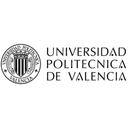This course is part of Interdisciplinary Sustainable Architecture Assessment.
This course provides a comprehensive introduction to architectural sustainability through an interdisciplinary lens. Students learn to develop conceptual neighborhood models for assessing building performance and urban policies. The curriculum covers material performance, optimization methods, energy impact assessment, and climate change considerations. Through practical coursework, participants gain skills in evaluating sustainability metrics and understanding their implementation in urban planning and policy.
4.1
(35 ratings)
49,570 already enrolled
Instructors:
English
English
What you'll learn
Evaluate building sustainability performance through material analysis
Develop methods for assessing energy usage in architectural projects
Create comprehensive neighborhood models for urban policy assessment
Understand infrastructure utilization in sustainable architecture
Implement integrated design approaches for sustainable development
Skills you'll gain
This course includes:
PreRecorded video
Graded assignments, Exams
Access on Mobile, Tablet, Desktop
Limited Access access
Shareable certificate
Closed caption
Get a Completion Certificate
Share your certificate with prospective employers and your professional network on LinkedIn.
Created by
Provided by

Top companies offer this course to their employees
Top companies provide this course to enhance their employees' skills, ensuring they excel in handling complex projects and drive organizational success.





There are 4 modules in this course
This interdisciplinary course explores sustainable architecture through multiple perspectives. Starting with basic sustainability assessments, students learn to develop conceptual models for evaluating building performance. The curriculum progresses through material performance, optimization techniques, energy impact assessment, and climate change considerations. Special emphasis is placed on practical applications in urban planning and policy implementation.
Materials relevance in buildings
Module 1
Buildings, performance, functions, and materials
Module 2
Efficiency, sustainability, and architecture
Module 3
Integrated design and Business Models
Module 4
Fee Structure
Individual course purchase is not available - to enroll in this course with a certificate, you need to purchase the complete Professional Certificate Course. For enrollment and detailed fee structure, visit the following: Interdisciplinary Sustainable Architecture Assessment
Instructors

4 Courses
Distinguished Leadership in Sustainable Business and Financial Education
Dr. Elena de la Poza serves as Associate Professor in Finance and Economics at Universitat Politècnica de València, where she earned her PhD in Finance in 2008. Her research focuses on sustainability, business impact assessment, and financial modeling, with significant contributions to understanding universities' roles in sustainable development. As Project Manager and Scientific Program Co-Director of the SEED 2024 International Conference on Sustainable Energy Education, she demonstrates her commitment to advancing sustainable education initiatives. Her current work includes leading research on corporate social responsibility transparency, sustainability rankings, and the financial performance of companies in relation to their environmental commitments. Her impact is evidenced through over 25 refereed research papers and 45 congress participations, with recent publications focusing on universities' reporting on SDGs and the sustainability of FinTech companies. Beyond her academic duties in financial, business, and entrepreneurship courses, she actively promotes regional sustainable development through her role in the CoVE SEED project, working to create a learning community focused on renewable energies in the Valencia Community.

4 Courses
Distinguished Leadership in Materials Science and Building Sustainability
Dr. Javier Orozco-Messana serves as Associate Professor at Universitat Politècnica de València while holding the position of Director for International Affairs at UPV. Born in Valencia in 1962, his career spans both industry and academia, with a consistent focus on R&D and education. His research interests center on materials science, building sustainability, and energy innovation, particularly in developing sustainable urban environments and innovative building materials. As a leading expert in materials science and ceramics, he has contributed significantly to understanding how efficient energy use in urban environments can reduce carbon emissions. His academic impact is evidenced through his role as guest editor for multiple special issues focused on building sustainability and materials innovation, while his research has garnered over 290 citations. He currently leads initiatives in advanced architecture materials, focusing on bio-based composites, recycled materials, and low-carbon alternatives to reduce environmental impact. His work extends to promoting sustainability in higher education, demonstrating his commitment to integrating sustainable development practices into academic institutions' core missions.
Testimonials
Testimonials and success stories are a testament to the quality of this program and its impact on your career and learning journey. Be the first to help others make an informed decision by sharing your review of the course.
Frequently asked questions
Below are some of the most commonly asked questions about this course. We aim to provide clear and concise answers to help you better understand the course content, structure, and any other relevant information. If you have any additional questions or if your question is not listed here, please don't hesitate to reach out to our support team for further assistance.



